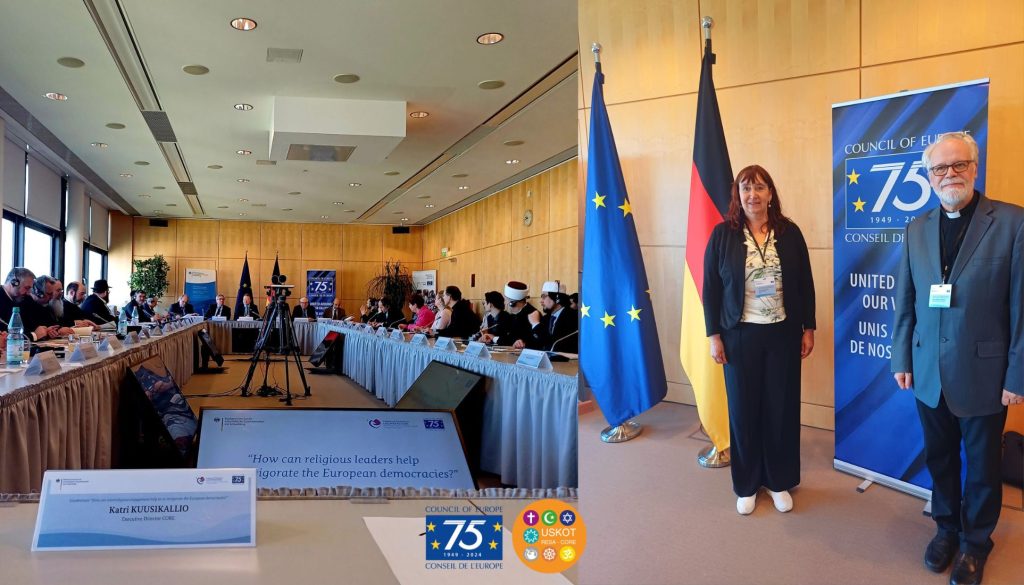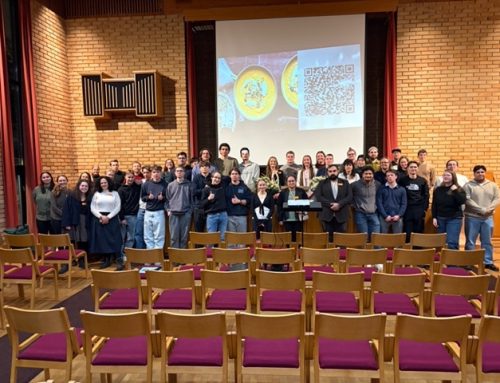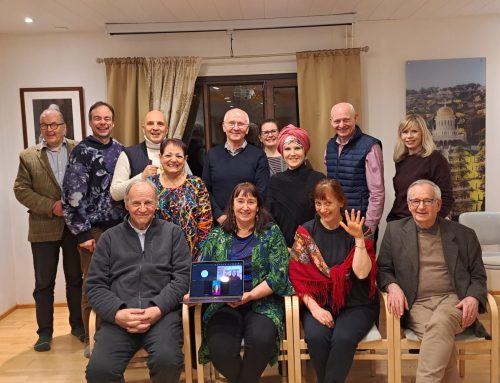
”I have a perspective of non-profit organization. We don’t practice religion. At CORE Forum our purpose is to foster peace in the Finnish society by strengthening religious freedom and promoting interfaith dialogue, equality, mutual respect and cooperation of religions. We represent seven religions together with large variety of groups and denominations. (Christianity, Islam, Judaism, Buddhism, Hinduism, The Church of Jesus Christ of Latter-day Saints and Bahá’í-community). We have six active thematic commissions with people with expertise of both religion and professional experience of religious education in schools, human rights, equality, international affairs, communications and youth have their own commission. They are volunteering and they are motivated. We reach them smoothly, which is a huge benefit for us. There are about 60 active people and larger network joining us occasionally.
We used to say: Religious freedom is one of the cornerstones of democratic society. CORE Forum’s organizational structure has been designed in a democratic way to ensure equality. Personally, I emphasize that religious leaders’ role is to remind of the good values of religions. About being truthful, honest and keep good manners even under strong emotional pressure and building bridges despite all the violence or hate that is going on around us locally, in Europe and globally. The religions can be part of problems, but they have to promote more religions to be part of solutions and peacebuilding.
In these days religious leaders should not focus only on their own people and religions, now wider co-operation is needed, with universities, municipalities, politicians, governmental authorities. It is not only to justify our people and our rights but to find people from different backgrounds to speak and act for peace and cohesion.
All over Europe there is lack of religious literacy, real knowledge of religions is needed. If there is any empty space in society, someone takes the power. It is crucial that people who have real knowledge about religions, and who are trusted within their communities, speak out their patient, calming point of views and don’t give the space to them, who misuse religion on their goals and power attempts. The politicians and law-makers don’t have sufficient religious literacy in their work, but we don’t just sit and wait for them to take contact, but we also take the initiative and we offer our expertise to them and they are usually pleased.
A spirit of compromise is always needed. We used to say at the CORE Forum that the functional interfaith dialogue and interreligious work is an example about the good-working platform to other fields and conversations in a society. In that dialogue no one needs to give up one’s identity, but all participants can enrich it and common goals are found and carried out.
Still, in these days in Europe there are voices from people who are disappointed in dialogue, and they are questioning the importance of dialogue. We have made so much dialogue and what is the result? Yes, we need dialogue, but not just some discussions there and there. We have to consider that dialogue is more demanding when there are tensions in situations and more often the space is not so peaceful anymore. We need to create safe spaces for the discussions.
The challenges we need to face: to have dialogue with them, who disagree with us. Just to keep connection to each other and not to isolate from others. Secondly, in dialogue there are often positions of power, someone is in better position than another and the partners should become aware of that and take it into consideration.
At CORE Forum we are not doing theological debate. It is essential also to find something in common in how to act to reach good purposes in concrete way. People don’t want just to sit and talk. They want to act. And that is the challenge and the opportunity.
We have implemented some concrete action. Getting to know your neighbours – projects and building trust is more important than ever. Building trust needs effort, time and resources. We have on agenda meetings with religious representatives and city of municipal leaders. We make statements for governmental ministries. Together we are stronger. Yesterday we got a request for statement from the Finnish prime minister’s office on how to prevent racism and increase equality, how we can together really act, not just speak. One serious theme is anti-muslim hatred. Antisemitism and anti-muslim hatred are challenging, because governments are not always willing to talk about the problems or solve them. It seems that the landscape of Muslims is quite diverse, so we have given effort the reach several groups, even the smaller ones. Religions can defend each other, not fight against each other. It is useful to create larger networks and we have found the Nordic countries’ network very useful. It is comfortable and powerful when we can share experiences, challenges, good practices and we know each other better.
And one very important thing. What it comes to religions, we have the culture of talking. But about dreams coming true or realizing these ideas, we need resources, simply we need funds. For the small communities it is the matter of survival, how to arrange all duties, with leadership, volunteers, fund raising, connections with the society and partners, media relations and youth and women empowerment. So, capacity building for the minority communities would really provide results and profit for all – feeling of security, cohesion, participation, ownership and integration to societal life. Together we can also implement projects as we are doing now.”
Berlin 14th of May



